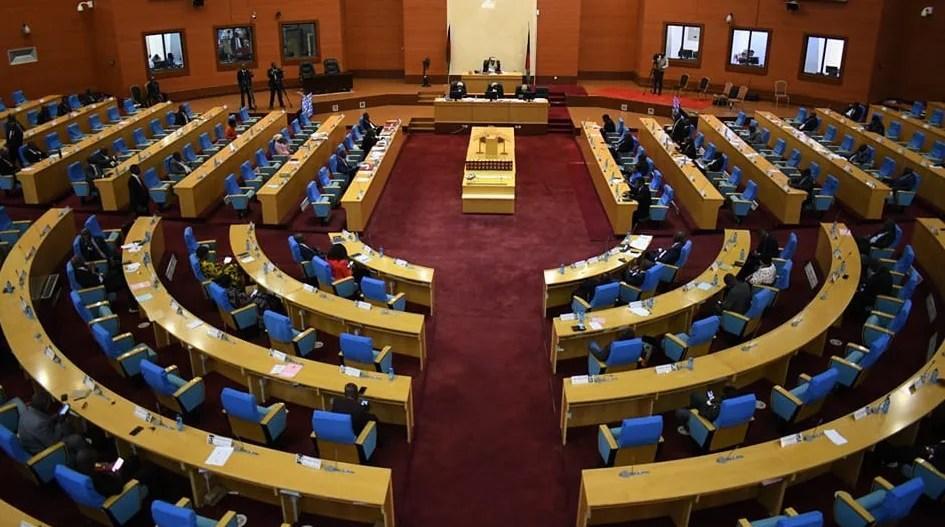Africa-Press – Malawi. In an unprecedented move towards ensuring unwavering stability and steady leadership, some Members of Parliament set out to table a bill proposing a presidential age limit of 80 during the current parliamentary session which began on 9th February, 2024.
In their considered view, setting the presidential age limit at 80, is a strategic measure to ensure that only leaders with sufficient reserves of energy and zeal, guide the nation.
They contend that individuals aged 80 and above would be better suited as government advisors rather than actively engaging in the day-to-day affairs of governance, as their energy levels might not suffice for such tasks.
On the other hand, opponents of the age limit such as the Civil Society Organisation, Malawi Network of Older Persons’ Organisations (MANEPO), believe that such laws would deprive a certain cadre of citizens, political rights.
According to MANEPO, such laws are a form of harassment, assault, stigma, and are a retrogressive step for Malawi human rights for the elderly as such, they propose such bills should never be tabled in the Malawi Parliament.
A compelling argument which, however, falls short of compelling proof and cannot counter the effect of age on one’s ability to guide. A 2009 study by Salthouse examined the trajectory of cognitive decline across adulthood. It suggests that while cognitive abilities typically remain relatively stable through midlife, the decline becomes more pronounced in later adulthood, particularly after the age of 60.
These declines may affect various cognitive domains, including memory, processing speed, and reasoning, which are crucial for effective decision-making and problem-solving in leadership roles. Its findings support the notion that advanced age can potentially impact cognitive functioning, which may have implications for leadership effectiveness.
This sentiment is echoed in the experiences of nations like Zimbabwe and Cameroon, where presidencies led by aging leaders have been marked by political instability and economic stagnation. Robert Mugabe’s nearly four-decade-long rule in Zimbabwe and Paul Biya’s extended tenure in Cameroon, serve as poignant examples of leaders whose advanced age became a hindrance rather than an advantage to effective governance.
Amidst a world grappling with unprecedented challenges, supporters of the proposed age limit emphasize the need for stability at the highest echelons of power. By advocating for a higher age limit, they contend that this measure safeguards against potential disruptions caused by rapid changes in leadership, ensuring a steady and secure trajectory for the nation.
Advocates of the age limit law highlight the positive correlation between age and economic acumen. They argue that leaders in their later years are more likely to possess a deep understanding of economic intricacies, fostering sustainable growth and prosperity. The proposed age limit, they claim, is a strategic move to capitalize on the wealth of experience for the benefit of the nation’s economic well-being.
Of course realities of governance in countries like Zimbabwe and Cameroon paint a different picture, with economic mismanagement and corruption often prevalent under long-serving leaders. Despite their advanced age, Mugabe and Biya failed to leverage their supposed economic expertise to uplift their nations, further underscoring the limitations of age as a determinant of leadership quality.
In the pursuit of national unity and cohesion, supporters of the age limit bill argue that seasoned leaders bring a unifying force to the political landscape. With age comes the ability to bridge generational gaps, fostering a sense of continuity and stability that transcends political divides.
The proponents stress that the proposal is not an arbitrary decision but rather a result of extensive consultations and careful consideration of the nation’s needs. They emphasize the importance of adapting the constitution to the evolving dynamics of leadership and assert that an age limit of 80 aligns perfectly with the current socio-political landscape.
Advocates posit that leaders above the age of 80, may encounter challenges in maintaining the vigor and energy required for the demanding responsibilities of the presidential office. This is true as the dynamic nature of governance demands an agile and energetic leader capable of steering the ship with enthusiasm and resilience.
Such a law should be supported as the crucial role of a president’s health in carrying out the duties of the highest office, cannot be ignored. Age-related health issues could pose a risk to effective governance, potentially hindering a leader’s ability to fulfill their responsibilities and make timely decisions.
This is why even Americans are urging the ageing Joe Biden to refrain from seeking re-election due to concerns about his age. Biden, who turned 81 on 20th November, 2023, has faced significant criticism regarding his age and his intention to run in the 2024 presidential elections. Critics argue that his advanced age may hinder his ability to effectively manage the affairs of government.
Back home, it may not be in the current sitting to ensure that parliamentarians focus on the budget session, but a law limiting presidential age, is a must for Malawi.
For More News And Analysis About Malawi Follow Africa-Press






